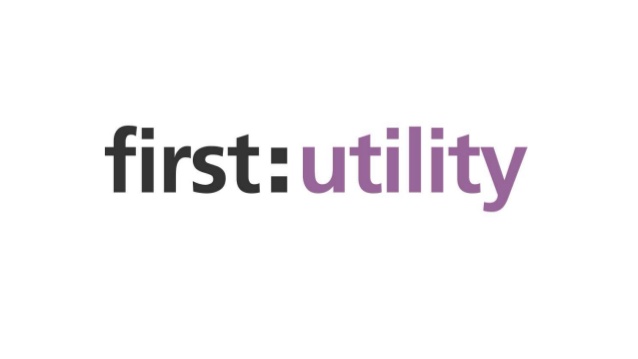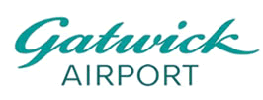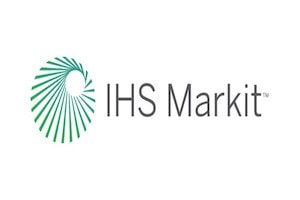You're likely asking yourself, "How much does Drupal really cost?" This is one of the most common and important questions for any business considering a digital platform. The perception that Open Source software like Drupal is "free" often leads to misunderstandings about the true financial commitment required for an enterprise-level deployment. We understand the frustration that comes from not finding clear pricing information, as it can make you feel like a company is hiding something, which ultimately erodes trust. Our goal here is to provide a transparent and objective overview of Drupal's costs, acting as your trusted guide in navigating this complex market.
While Drupal is indeed free to download and use, its Open Source nature means the financial burden shifts from traditional licensing fees to significant expenditures in other critical areas. Think of it like buying a car: the sticker price is just one part of the equation; there are ongoing costs for fuel, maintenance, and insurance. Similarly, Drupal's Total Cost of Ownership (TCO) is a comprehensive measure that accounts for all direct and indirect expenses throughout its lifecycle, typically evaluated over five to ten years.
Understanding the True Cost: Key Components Influencing Drupal's TCO
The total cost of a Drupal implementation is a multifaceted calculation, influenced by several key components across the platform's lifecycle. Costs will vary significantly based on your project's complexity, customization needs, and the specific functionalities you require.
Development and Implementation Costs
This is often the largest initial investment, covering the creation of your website, custom modules and themes, complex API integrations, and data migration. The more unique and tailored your solution needs to be, the higher these costs will be.
- Project Complexity:
- Small Business Websites: Typically range from $5,000 to $20,000 for basic features like a home page, blog, contact form, and some customized modules.
- Mid-Sized Corporate Websites: May cost between $20,000 to $75,000 for custom designs, content-heavy pages, CRM integration, and multilingual support.
- Enterprise-Level Websites: Can exceed $75,000 to $200,000+ for custom workflows, e-commerce, extensive database management, and scalable architecture.
- Large-Scale Enterprise Projects: Highly complex projects might range from $150,000 to $1,000,000.
- Custom Components:
- Basic custom themes: $1,000 to $5,000.
- Advanced custom themes: $5,000 to $20,000+.
- Simple custom modules: $500 to $2,000.
- Complex modules: $10,000 to $50,000+.
- Simple API integrations: $500 to $3,000.
- Complex API integrations: $10,000 to $50,000+.
- Developer Expertise and Geography: Hourly rates for Drupal developers vary significantly based on experience and location:
- Junior (0-2 years): Typically $25 – $50 per hour globally. Regional rates might be $18-$30/hour in South Asia, $20-$35/hour in Eastern Europe, and $35-$60/hour in North America.
- Mid-Level (2-5 years): Range from $50 – $100 per hour globally. In South Asia, $30-$60/hour; Eastern Europe, $35-$70/hour; North America, $60-$120/hour.
- Senior (5+ years): Command rates of $100 – $200+ per hour globally. North American senior developers might charge $120-$200/hour, while those in Eastern Europe or South Asia could bill $40-$80/hour. Agencies generally charge $80-$180 per hour.
Infrastructure and Operational Costs (Hosting)
These are the ongoing expenses to keep your Drupal platform running.
- Shared Hosting: The most economical, typically $5-$50 per month, suitable for small, low-traffic sites.
- Cloud Hosting (VPS/Managed Cloud): Offers greater scalability and performance, generally $20-$500+ per month. Providers include Hostinger, IONOS, Bluehost, SiteGround, DreamHost, Hosting.com (formerly A2 Hosting), GreenGeeks, and Glowhost.
- Managed Drupal Hosting (Platform as a Service - PaaS): Specifically optimized for Drupal, offering enhanced performance, robust security, and dedicated support, often with 24/7 Service Level Agreements (SLAs). This offloads infrastructure management, reducing internal staffing needs and operational risks.
- Basic plans can start from $14.95/month (ScalaHosting) or $4.99/month (Cloudclusters.io).
- Acquia, a well-regarded provider, offers plans starting at $141/month for 100,000 pageviews and 25GB storage, scaling up to $516/month for 1,000,000 pageviews and 200GB storage. They also have custom-priced Enterprise plans.
- Pantheon's plans range from a Basic tier at $42/month to Performance 2XL at $769/month, with a median buyer cost of $36,724.
Maintenance and Upgrade Costs
This category covers the continuous effort to keep your Drupal system secure, performant, and up-to-date. This includes regular security updates, core and contributed module updates, bug fixes, performance tuning, and often complex migrations between major Drupal versions (e.g., Drupal 8/9 to Drupal 10). Delaying these updates can lead to "technical debt," increased security risks, and more expensive future updates.
Support and Customer Service
Costs for expert assistance, troubleshooting, and guaranteed response times for critical incidents.
- Monthly plans: Ranging from $99/month for basic proactive maintenance to $299/month for comprehensive plans offering unlimited support (e.g., Drupal Aid).
- Hourly rates for on-demand or emergency assistance: From $32-$50/hour (HookSupport) or as low as $39/hour for 24/7 support (Bobcares).
- Annual subscriptions for specialized support, such as Apache Solr production support, can range from $10,000 to $25,000 annually (e.g., Sematext).
- Sirius, a core technology partner for Drupal, offers ongoing support starting from $3,000 per annum, scaling up for larger clients. Their emergency support is typically included for existing clients under contract. For existing customers without a contract, it's $250 per hour (with a 30% discount for first use, down to $175/hour). New customers are charged $325 per hour (with a 30% introductory discount, down to $227.50/hour).
Security and Compliance
Implementing and maintaining dedicated security setups, proactive vulnerability management, and ensuring adherence to regulatory standards like GDPR or HIPAA. Enterprise security solutions can cost $10,000 to $50,000+ per year. A financial services client, for example, spent over $38,000 annually just on security compliance for their legacy Drupal 7 infrastructure.
Training and Personnel Development
Investing in the skills of your internal teams to efficiently develop, maintain, and operate the Drupal platform. A five-day comprehensive Drupal developer course, for instance, can cost $1,995 for a minimum of two persons.
Advanced Search Integration (e.g., Apache Solr)
For enterprise Drupal implementations, especially with extensive content, integrating a search solution like Apache Solr is often essential. This introduces additional costs and considerations.
- Self-Managed (On-Premise/IaaS): Incurs significant direct and indirect costs, including hardware (servers, RAM, SSDs), network bandwidth, power, and cooling. You'll also need specialized in-house expertise, such as DevOps engineers and Site Reliability Engineers (SREs), for complex setup, configuration, cluster management, and ongoing operations. Managing an external Apache ZooKeeper ensemble (typically 3 to 5 nodes) is also crucial for fault tolerance.
- Managed Solr Services (SaaS): These solutions offload the complexities of infrastructure management, automating deployment, management, and scaling. They typically include cloud automation, high availability, monitoring, disaster recovery, and robust security options. Pricing is usually tiered based on factors like data size, daily search volumes, and uptime SLAs.
- EdgeHosting offers plans from $60/month (20,000 documents) to $1,800+/month (over 1 million documents).
- WebSolr tiers range from $59/month (1GB data, 40k searches/day) to $2,999/month for enterprise plans.
- Elestio provides fully managed Solr instances starting at $15/month for basic configurations, scaling up to $100/month for more powerful ones.
- Niles Partners Inc. offers solutions starting at $0.0038/hour plus Azure infrastructure costs.
- Sirius also provides managed services that include Solr systems as part of a broader digital estate offering.
Why Aren't Costs Always Publicly Discussed? Addressing Common Concerns
You might wonder why many companies hesitate to openly discuss pricing and costs on their websites. We've found three common justifications, and we'll explain why transparency is always the better path:
- "Every solution is different; our prices vary." We understand this sentiment. Drupal's immense flexibility and deep customization capabilities mean that a one-size-fits-all price list isn't feasible. However, this doesn't mean you can't provide valuable information. You, as the customer, aren't looking for an exact figure; you want a sense of what to expect and the factors that influence the cost. By explaining what drives costs up or down (e.g., complexity of design, number of custom modules, hosting choices), companies can still educate you and build trust, even with variable pricing.
- "If we discuss pricing on our website, our competitors will find out what we charge." The reality is, in most industries, competitors already have a very good idea of each other's pricing structures. Letting competitor concerns dictate your customer education strategy is counterproductive. Your focus should be on educating you, the potential customer, because you are the one who drives the business. By being open, you differentiate yourself and gain trust.
- "If we show what we charge, we'll scare customers away." This is a common fear, but the opposite is often true. What actually scares customers away is the absence of cost information. When you can't find pricing, you might assume the company is too expensive, hiding something, or simply not transparent, leading you to leave their site to find answers elsewhere. Discussing costs isn't just about affordability; it's about building trust and demonstrating honesty. Companies that are transparent about pricing often attract more qualified leads who are a better fit for their services, saving time for both parties.
Conclusion: Making an Informed Investment
While the initial download of Drupal is free, the true investment in an enterprise-level deployment is substantial, necessitating careful planning for development, infrastructure, maintenance, and support. Understanding the full Total Cost of Ownership (TCO) is crucial for making informed decisions and maximizing your Return on Investment (ROI).
Strategic approaches, such as prioritizing managed services for core infrastructure, proactively investing in maintenance and upgrades, leveraging global talent pools, and optimizing resource utilization, can help manage these costs effectively. By embracing transparency and a "teacher's mentality" towards cost, businesses can empower you, the customer, to make confident and well-informed decisions, fostering trust and long-term success.
















































